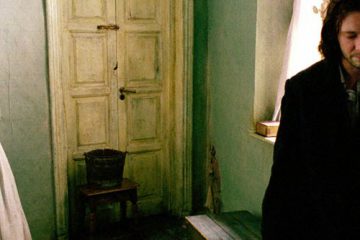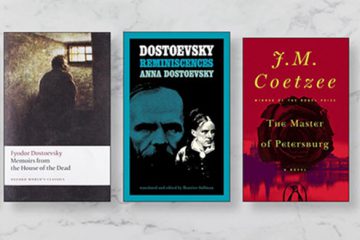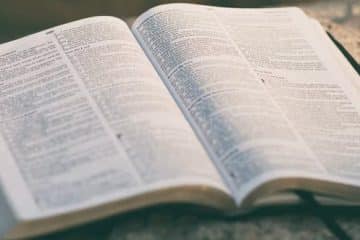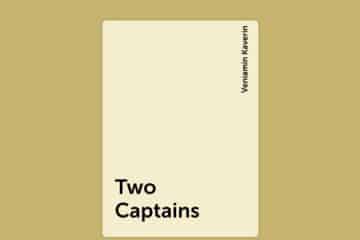The Great Pentateuch is the name given to the unofficial cycle of the five most ambitious novels of the Russian classic Fyodor Mikhailovich Dostoevsky. They were written one after another and, as it were, represent a novel marathon of a brilliant prose writer. The Pentateuch includes: “Crime and Punishment”, “Idiot”, “Demons”, “Teenager” and “The Brothers Karamazov”.
literary allusion. It is worth noting that the designation “the great Pentateuch of Dostoevsky” captures a connection with the “Pentateuch of Moses” – the first five books of the Bible of Jews and Christians (Genesis, Exodus, Leviticus, Numbers, and Deuteronomy). The text of his work was dictated to Moses by God himself, Dostoevsky’s talent is so great that it is difficult to imagine that his books were written by a man, it seems that they were also dictated by some divine essence.
A complete list of Dostoevsky’s books can be found at the link above.
Summary of books from the Pentateuch:
- Book 1 – “Crime and Punishment” (1866)
- Book 2 – “The Idiot” (1868-69)
- Book 3 – “Demons” (1871-72)
- Book 4 – “Teenager” (1875)
- Book 5 – The Brothers Karamazov (1879-80)
Book 1 – “Crime and Punishment” (1866)
Dostoevsky’s textbook novel “Crime and Punishment” has come a long way in the author’s mind from conception to implementation. Fyodor Mikhailovich began to think about a strong personality who was not afraid of either remorse or trial in those days when he himself was sitting on hard labor bunks. Ironically, this is where his main character returned. Sketches of storylines were scattered across separate stories and drafts, which Dostoevsky subsequently combined. The first chapters of the future masterpiece were written in Wiesbaden. The writer lost a deposit from the publisher in cards, therefore he worked hungry, and cold, illuminating the path of his Raskolnikov with a candle stub. After the publication of Crime and Punishment, it caused a powerful wave of controversy, which, it must be said, has not subsided so far. The novel is still the subject of research by many scientists because it is a storehouse of ideas and meanings.
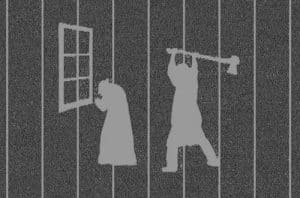
Plot. Rodion Romanovich Raskolnikov is an ordinary St. Petersburg student, or rather, a former student. Due to extreme need, he had to give up his education. He rents a dirty, cramped closet under the very roof, is constantly hungry, and sees nothing but the yellow walls of his hated haven. In this unhealthy atmosphere, Raskolnikov gives birth to a strange theory that all people are divided into two types – ordinary people (for whom the law is written) and “extraordinary” (those who can transcend the law, because they themselves are “legislators of mankind”; These “super personalities” Raskolnikov refers primarily to his idol Napoleon).
“I just killed, I killed for myself, for myself alone … I had to find out something else … Will I be able to cross or not? … Am I a trembling creature, or do I have the right”
To put his theory into practice, Raskolnikov chooses the old pawnbroker Alena Ivanovna, in fact, a vile and useless person. An incredible miser, she took things for a pittance and put on them unbearable interest, which earned her a well-fed life. The last straw for Rodion was a letter from home, which reported that soon his sister, the beautiful Dunya, would be married to the “benefactor” Pyotr Petrovich Luzhin. Raskolnikov knew that Dunya Luzhin did not love and that this was a sacrifice to save the family, in particular, himself.
Raskolnikov kills the pawnbroker with an ax, but Alena Ivanovna’s sister, the timid Lizaveta, who suddenly appears, ruins his plans. As a witness, Rodion has to kill her too. He rushes about in agony through the blood-drenched apartment and realizes that everything is not going as planned … Well, then comes Raskolnikov’s long and difficult path after the crime, full of torment and spiritual throwing. He will have to meet many unusual people – the drunkard Marmeladov, his wife Katerina Ivanovna, the sacrificial Sonechka, who took the path of prostitution to save her family, the vile landowner Svidrigailov and, of course, the investigator Porfiry Petrovich – the main opponent, tormentor, and voice of conscience of Raskolnikov the criminal.
Book 2 – “The Idiot” (1868-69)
The work on this novel, according to Dostoevsky himself, proceeded quite difficultly, because his main goal was to depict a positively beautiful person – “there is nothing more difficult than this in the world.” At the same time, Fyodor Mikhailovich was very fond of this work, because it to a greater extent reflected his moral and philosophical views in the period of the 60s. With the drafts of The Idiot, Dostoevsky traveled around Western and Southern Europe, working on the work, now in Switzerland, now in Germany, now in sunny Italy.
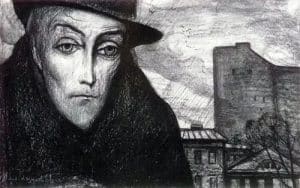
Plot. The protagonist Lev Nikolaevich Myshkin, 26 years old, is an extraordinary person. He is kind in soul and in his thoughts, his nature is not familiar with lies, betrayal, deceit, greed – in a word, he is an idiot of the purest water, as they call him behind his back. Prince Myshkin spent several years in a sanatorium in Switzerland, being treated for epilepsy (epilepsy). He does not have a proper education, but he certainly knows how to read and write. But the most important thing is that Lev Nikolayevich is not accustomed to living in that evil and cruel world, of which, alas, he is a part.
The main character will get to know Aglaya Yepanchina, a wayward, capricious, and progressive person, with the cold beauty Nastasya Filippovna, whose life broke down before she had time to begin, with the cruel and secretive Parfyon Rogodin and many other people and their vices. No matter how Myshkin tries to take root in this enemy world, he does not accept him and literally drives him crazy.
“In her pride, she will never forgive my love – and we will both perish!”
Book 3 – “Demons” (1871-72)
The Possessed is the most politicized of Dostoevsky’s novels, often put on a par with the anti-nihilistic works of the 19th century. In literary criticism, the novel was also assigned definitions – a novel-warning, a novel-prediction, because the author actually predicted the coming social catastrophes – the Russian revolution fed by human blood, the regimes of Hitler and Stalin. However, speaking about the social, Fedor Mikhailovich paid special attention to the root cause of the disasters of mankind – the degradation of the soul and morality.
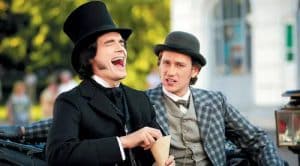
The ground for the birth of the idea of ”Demons” was the emergence of terrorist and radical movements among the intelligentsia, and the impetus was the political assassination of student Ivan Ivanov, planned by the nihilist and revolutionary Sergei Nechaev to strengthen his position in the circle of like-minded people, and provoked the beginning of a new revolutionary philosophy, the so-called “mechanism”. “.
Plot. The events of the novel unfold in a district town reminiscent of Tver. A storm is brewing in the peaceful, boring life of the town, and the worst thing is that this devastating disaster is born not in the atmosphere, but in human heads. Pyotr Stepanovich Verkhovensky (prototype Sergey Nechaev) organizes a revolutionary circle. Under the guidance of this clever and prudent master of intrigue, who hides under the guise of a jester, the revolutionaries quickly move from spatial speeches to actions. In order to strengthen relations in the “circle” (“five”), Verkhovensky conceives a murder. As a victim, he chooses Ivan Pavlovich Shatov, a former revolutionary who, after traveling around Europe, lost faith in revolutionary ideas and began to promote a new philosophy about the God-bearing people (the prototype was Ivan Ivanov killed by the massacre). The first political assassination dramatically changes the life of the town and its inhabitants, many of whom unwittingly find themselves drawn into the revolutionary game of Verkhovensky.
“You need to be a really great person to be able to resist common sense”
Book 4 – “Teenager” (1875)
The upbringing novel Teenager touches on the relationship between fathers and children. The main character Arkady Dolgoruky is 19 years old, but the author decides to call him a “teenager” because now he is at the intersection of two times – childhood and adulthood. Being the illegitimate son of the landowner Andrei Petrovich Versilov, the young man experiences much mental anguish. He longs for wealth, recognition, and high status, he dreams of breaking out of his dual position of “under-son”, “under-noble”, and “sub-human”.
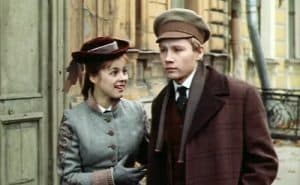
Arkady tries to appear older and is indignant when others call him a “teenager”: “What kind of teenager? Do they still grow after nineteen?” “Maybe not physically,” Dostoevsky retorts, “but morally.”
Due to its timeless theme, Dostoevsky’s The Teenager is perhaps the writer’s most contemporary novel. Even today, it is easy and understandable to read, thereby becoming fixed outside of literary time.
“The present time is the time of the golden mean and insensitivity, passion for ignorance, laziness, inability to work and the need for everything ready”
Book 5 – The Brothers Karamazov (1879-80)
In the novel “The Brothers Karamazov” Fyodor Mikhailovich and many critics consider the main work of his life, his personal “Faust”. It is foolish to call it simply a “family chronicle”, this work is something on a larger scale – a generalized metaphorical image of modern reality and the entire intelligentsia of Russia. Dostoevsky’s plans were to write a continuation of the work, but a suddenly aggravated illness did not allow him to carry out his plan – the writer died two months after publication.
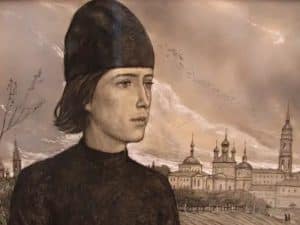
The novel consists of 12 books, united in four semantic parts.
Plot. The events take place in the town of Skotoprigonyevsk in the wealthy Karamazov family. The semantic line revolves around the murder of the head of the family – Fyodor Pavlovich Karamazov. The ground for the crime was prepared by his rivalry with his son over Grushenka Svetlova. Philosophical reflections of the characters and the author himself are skillfully woven into the canvas of the detective, and the social and moral vices of modern society and humanity as a whole are ruthlessly exposed.
“Russian very often laughs where it is necessary to cry”
